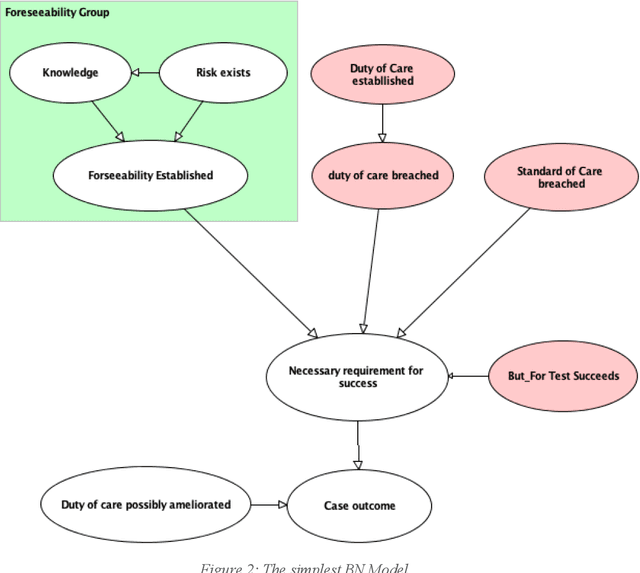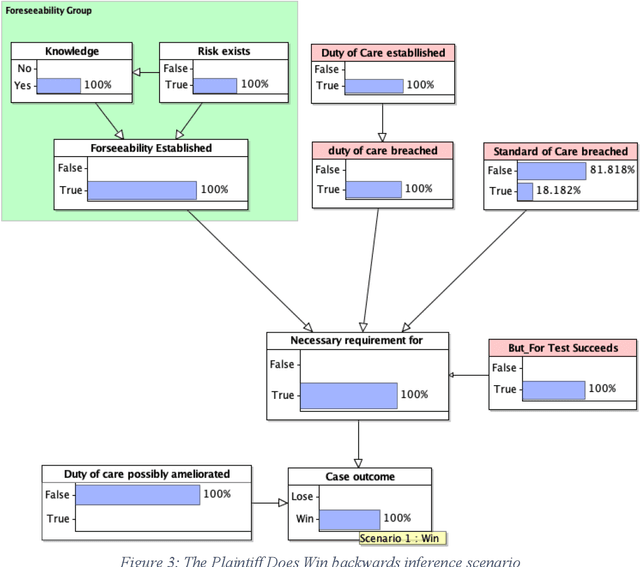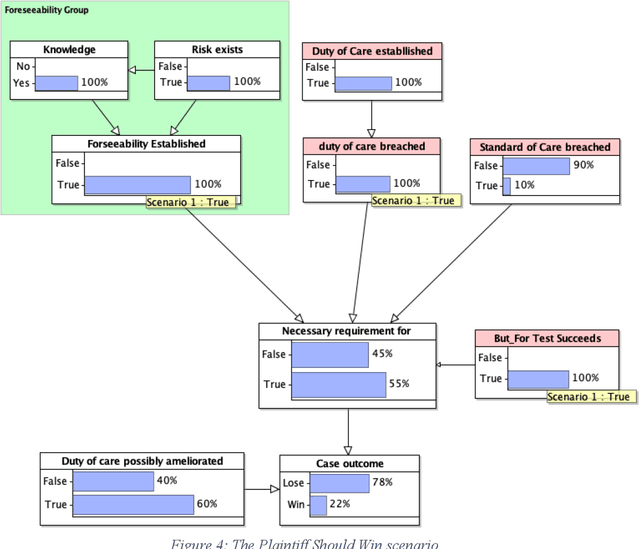Public Authorities as Defendants: Using Bayesian Networks to determine the Likelihood of Success for Negligence claims in the wake of Oakden
Paper and Code
Feb 01, 2020



Several countries are currently investigating issues of neglect, poor quality care and abuse in the aged care sector. In most cases it is the State who license and monitor aged care providers, which frequently introduces a serious conflict of interest because the State also operate many of the facilities where our most vulnerable peoples are cared for. Where issues are raised with the standard of care being provided, the State are seen by many as a deep-pockets defendant and become the target of high-value lawsuits. This paper draws on cases and circumstances from one jurisdiction based on the English legal tradition, Australia, and proposes a Bayesian solution capable of determining probability for success for citizen plaintiffs who bring negligence claims against a public authority defendant. Use of a Bayesian network trained on case audit data shows that even when the plaintiff case meets all requirements for a successful negligence litigation, success is not often assured. Only in around one-fifth of these cases does the plaintiff succeed against a public authority as defendant.
 Add to Chrome
Add to Chrome Add to Firefox
Add to Firefox Add to Edge
Add to Edge